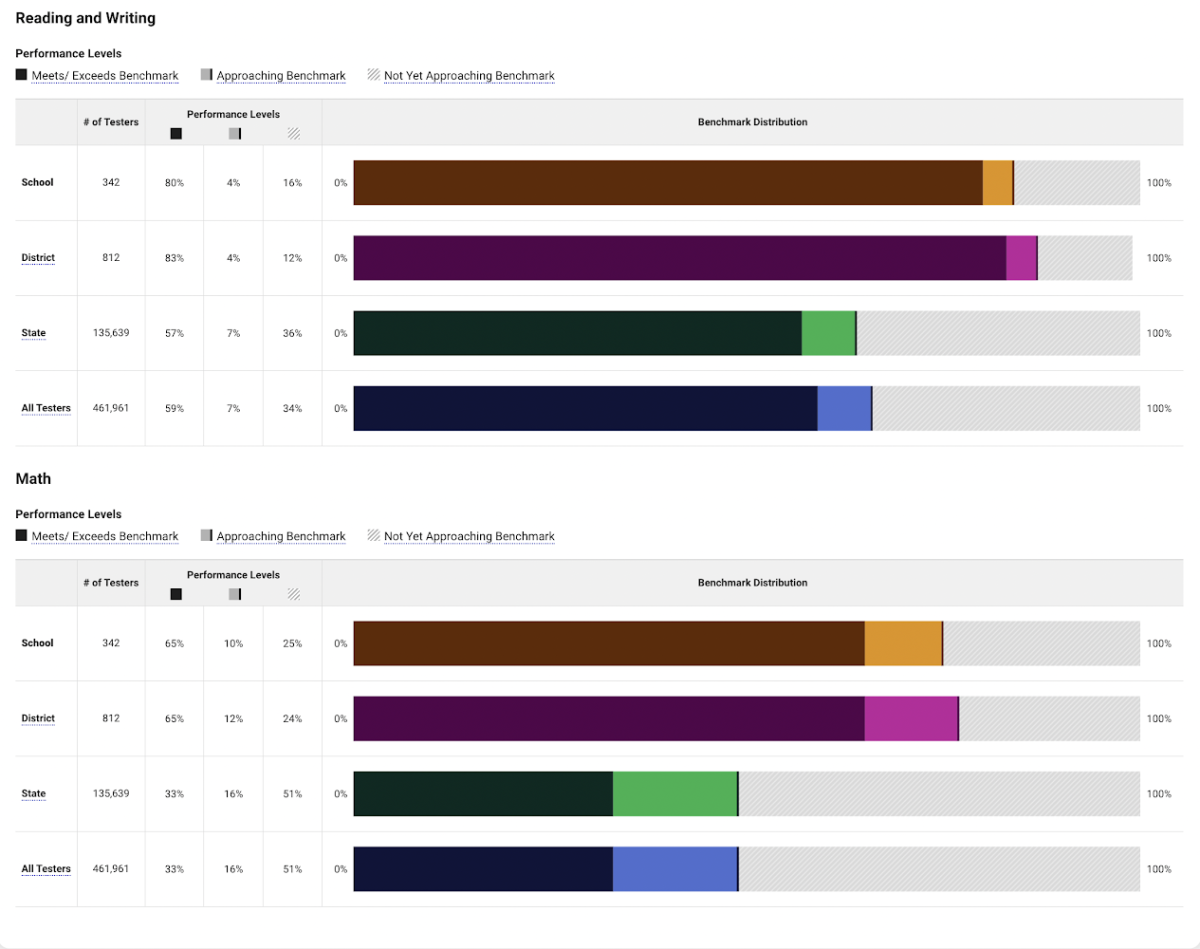On August 25, 2017, the Accelerated Placement Act was signed into law, to take effect on July 1, 2018. This act outlined an automatic enrollment process in accelerated courses to be implemented during the 2023-2024 school year.
According to Dr. Andrew Young, PSAT scores will now be looked at as a benchmark for what english, math, science, and social studies classes a student will be recommended for.
Daniel Pien, a counselor, discussed communicating with students about what course selection will now look like.
“What [course selection] looks like will be different; that’s the biggest change. [We] have to explain to families what looks different this year, and what opting out means,” Pien said.
Prior to this, students typically moved onto the next class at the same level. Teachers were able to make recommendations to advance them to a higher-level class. Students could also ask to be moved up.
Now, if a student is meeting national benchmarks on their PSAT scores, they no longer need a teacher recommendation or have to ask to be moved up. They will automatically be placed in the next most rigorous course.
According to Dr. Young, this will open up the opportunities available for students and make the environments within Advanced Placement (AP), honors, capstone, and dual credit classes more diverse.
Steven Korney, head of the math department, talked about the Advanced Placement Act leveling the playing field for students who have been excluded from academically challenging courses in the past.
“There are students that are performing at or above the same level as some of their peers, and not all of them are getting equitable access to challenging courses. [The act is] trying to…ensure that all students that are academically capable are afforded equitable opportunities,” Korney said.
Young stated that between 92 and 94 percent of students at VHHS go on to a two or four-year school.
“We want kids to feel empowered to take our most rigorous courses…we know they are headed to a university setting for the most part,” Young said.
According to aggregate data from the PSAT 10 taken by current juniors, 65 percent of students meet or exceed the benchmark in math, while 80 percent of students meet or exceed the benchmark in English.
According to aggregate data from the PSAT 8/9 taken by current sophomores, 74 percent of students meet or exceed the benchmark in math, while 88 percent of students meet or exceed the benchmark in English.
These percentages show that a majority of VHHS students are meeting or exceeding national benchmarks for math and reading.
“The reality is, in some of our most rigorous courses, there was less of a spectrum of student’s abilities. Most of our students are very high performing, able to put forth the skills, the efforts, the experiences that allow them to be successful in those classes. Now, that spectrum is just going to get a little wider” Young said.
According to Young, department chairs and teacher teams are working on ways to direct students to resources outlining the differences between the course options so they are better prepared for a potential course level change as those opportunities open up for them.
“We are going to ask our teachers to have clear and consistent conversations about what different course options are in their department for the following year when we get back in January,” Young said.
Korney talked about a course-matrix that will be shared to students in order to differentiate between different levels.
“For example, there are three levels of Algebra: intermediate, college prep, and honors. What our department has tried to do is summarize the differences between the levels, so that students can make the decision for what will be an appropriately challenging class” Korney said.
Pien talks about the “out of class calendar” which will be introduced to students to help them keep track of potentially more time-consuming classes.
“You can pick what classes you want to sign up for, and we got feedback from teachers about how much time they think you need to spend on this class every night, studying for tests, doing homework, or keeping up with material,” Pien said.
Korney mentioned that a lot of valuable information can come from other students who have taken the classes already, and that students should look to their peers as a resource when picking classes.
“Conversations with their peers would be a great resource so they could get a sense from their friends of what the next most rigorous course is like, how much work it entails [and] how hard it is,” said Korney.
Pien urges students to reach out to their peers, in addition to their counselors, the curriculum guide, and their teachers, for information regarding level changes as they are picking their courses.
“There are students, for whatever reason, who haven’t had access to some of our most rigorous courses. Maybe their teacher didn’t recommend them, or their fifth grade teacher didn’t put them on a certain track that they should’ve had access to since they’re meeting national benchmarks” said Young.

